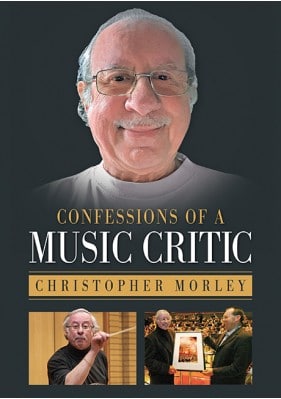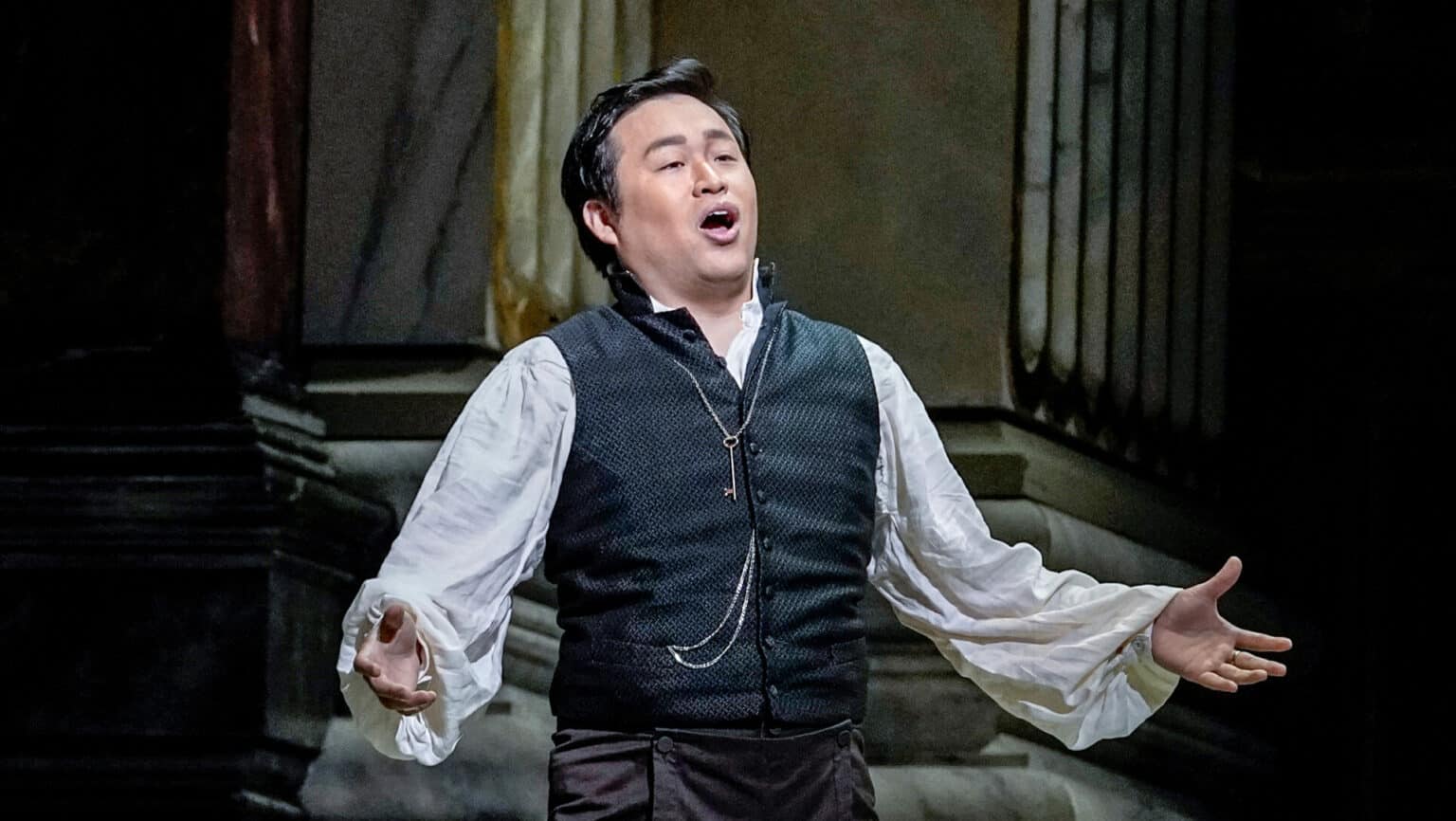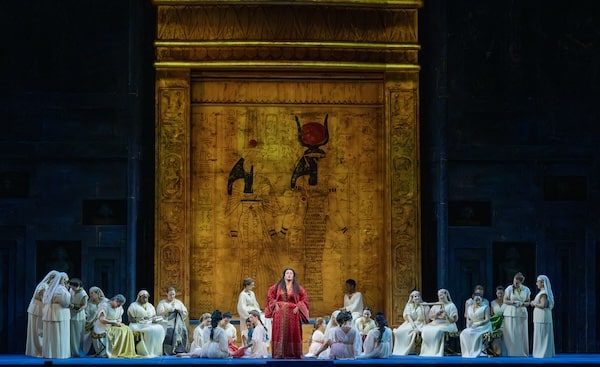Brum’s best critic deconstructs CBSO’s new concept
OrchestrasChristopher Morley has been Birmingham’s go-to music critic and editor for half a century. He is horrified by its orchestra’s new agenda.
He deconstructs it here for Slipped Disc:
I first reviewed the CBSO in 1969 and since 1988 have reviewed this brilliant orchestra from my position as chief music critic of the Birmingham Post. From that year onwards it has been my privilege to tour with them, to hold pre-concert interviews with guest performers, to chat with them over post-concert subscribers’ teas, and to marvel all the time at the size of its fan club, not only in the Midlands, but also abroad, as far as Japan.
So I am surprised and dismayed that the CBSO’s new backstage leadership seems to be ignoring the wise axiom “if it ain’t broke, don’t fix it”, and is proposing to revamp every aspect of the concert-going experience. My colleague Norman Stinchcombe forensically analysed almost every detail of the orchestra’s initial testing of these waters in the December 13 concert at Symphony Hall, and he was not impressed (www.midlandsmusicreviews.co.uk). My comments on chief executive Emma Stennings’ mission statement follow, interjecting upon some of her “Five Points”.
1. A NEW ‘CBSO WELCOME’.
There will always be an explicit welcome from the stage (by a member of the CBSO or a visiting artist). Okay, but do we need this?
We will develop the pre- and post-concert experience in every venue, centring it around the audience and creating a joyful and welcoming environment. Hasn’t there been one before?
This could include:
Curating playlists which enhance the experience and are relevant to the performance. What actually does this mean, and what have we been missing up to now?
Briefing front of house staff to be welcoming and informal.This is an insult to Symphony Hall’s fantastically helpful stewards and bartenders.
Having a strong CBSO presence to allow audiences to connect with staff and players. Hasn’t there always been this?
Further developing and curating talks and events in both style and content. A nebulous, vapid statement.
Introductory material will always be designed to help the audience listen clearly to the programme.Oh ye gods, how have we managed up till now?
We will commission a pre-show film (ideally mapped for Symphony Hall) which communicates the identity and character of the orchestra. How much is this going to cost? Perhaps we don’t know if the Arts Council of England has provided information as to which boxes to tick.
The removal of any perceived ‘rules’ of a traditional concert, clearly inviting audiences to:
Bring drinks into the auditorium. Not next to my seat they don’t, and Andrew Jowett, founding and much-loved Director of Symphony Hall, would be appalled.
Clap whenever they like. Ditto.
Wear whatever makes them feel comfortable.Haven’t we always?
Take photos or short snippets of film (and to share them with us). See above.
Be mindful of everyone’s experience. Doesn’t that go without saying?
2. AN ENHANCED MUSICAL EXPERIENCE.
We will use theatrical and creative techniques including lighting, movement, staging, live video mix and elements of movement, to allow audiences to use their eyes as well as their ears, celebrating and showcasing the individuals on stage, enabling the audience to see who is playing what and to see the personalities within the orchestra.
One very experienced audience member has already told me how distracting he found all this was at the innovative experimental concert on December 13.
I would also add that such distractions take away the imaginative element, imposing one interpretation upon the listener, and destroying the fantasy of musical experience.
3. EMBRACING THE WORLD AS OUR STAGE
We will find ways to share our performances to audiences beyond the concert hall and across the world. Building on existing relationships with Radio 3 and Classic FM, and by finding new audio and visual partners, eventually concerts will be streamed live. Inspired by the legacy of Paganini, Liszt and the pioneering orchestras of the nineteenth century, our concert “shows” will be toured nationally and internationally and grace the stages of festivals across the world.
Yeah, right. How much is it going to cost to tour all this razzmatazz to venues who already value the CBSO for what it is?
I now return to a normal font, to declare that I find the whole tone of this mission-statement patronising, disrespectful of everything the CBSO has achieved in the past, and risking the alienation of hundreds of already-confirmed supporters – in the nebulous hope of attracting a trendy young audience.
Audiences evolve as their life evolves. We go to concerts as students, then we marry and raise families, and those exigencies prevent us from attending concerts. As we get older, and family and financial responsibilities get easier, then we return to the concert-hall. That is how it works.
No-one cares more passionately than me about the CBSO, an orchestra I have loved for well over half a century. I can count its principal conductors amongst my friends, connected via text and email, and so many of the players over the years have trusted me to be on their side – we all care about music and spreading its message.
Chief Executives Edward Smith and Stephen Maddock took the orchestra huge strides forward on the world stage, thus enhancing the CBSO’s stature back home. Simon Rattle and Ed Smith even managed to get the EU to combine with the City of Birmingham to build one of the world’s greatest concert-halls.
Is all this achievement to be overlooked in a misguided attempt to be more “woke”?
Christopher Morley






Quite so, Christopher. There is little more to be said, but I’ve said it anyway…….
It does sound a bit nanny state but maybe they are catering for new audiences – people who know nothing about music but who wish to have a go. Not everyone is as knowledgeable about music as this gentleman and there is a lot of other new experiences out there with computer games, AI, etc. etc.
And the CBSO do just that via other existing routes, namely their regular family concerts and schools’ concerts at Symphony Hall, as well as their Notelets concerts at CBSO Centre for the very young, together with their outreach programmes in the community, the CBSO Chorus, and Community Choir.
The current proposed manifesto will not drag anyone new into the concert hall, but may well alienate the existing demographic. ‘If it ain’t broke, don’t fix it’.
Being a professional musician for a good decade now, I’m growing more and more tired of this.
As if the product we’re selling had lost any of its value, it’s still incredible and invaluable art, those musical masterpieces.
For me it comes to a point, where I feel like: let the concert halls be empty then! Let people miss out on all this. There’s been an era of great popularity of classical music and it just doesn’t fit well with our modern short lived society. If the only thing that will fill halls is laser-light sharades or instagram fame-boy-conductors, then let the damn halls be empty for a while.
Completely agree, Max. Symphony orchestras in the USA began this kind of marketing at least 15 years ago. There have to be statistics tracing the growth or demise of public attendance by the American Symphony Orchestra League since this kind of branding was initiated. Would be curious to read them.
Thank you, Mr. Morley. No doubt you’ll be descended upon by the “we must abandon traditions and cater to the new, Internet-dependent, visually-oriented, instantly-gratified, steeped-in-CGI,
paralyzed-without-their-cellphones generation” crowd, but I applaud and support the notion that music can still speak for itself without props, gimmicks, or sorry attempts at making it more relevant. If you don’t believe in the notes Beethoven wrote, you have no more business being in the music profession than you do being a minister without faith in holy scripture.
Speaking of which, Adam, whilst the dear national church is trying to make its mind up whether to be woke, or anti-woke; or just-a-little-bit-woke if you like that sort of thing, and parish churches struggle to maintain both their buildings and to cope with the latest management-speak; nevertheless, attendances at Anglican cathedrals with their strong musical traditions are increasing steadily, whilst Orthodox congregations are rising rapidly too.
There’s a moral there somewhere………
Oho! A nice little sneer at blessings for gay couples as “woke”. Yes, that really does advance the cause of music in Birmingham. More, please.
No sneering whatsoever Paul. Were I still officiating, I would happily endorse same sex blessing ceremonies. However, there is still plenty of management-speak to be found in other corners of the Church.
My point is that where churches and cathedral foundations are offering excellence in worship and tradition, along with a sense of awe and mystery, they are flourishing without gimmickry.
Listen to Will Self on BBC Radio 4 at 0845 this morning.
Perhaps you should have been more specific about the management-speak you deplored.
Any comment from Sir Simon?
Why would there be? Do we expect Tilson-Thomas to comment every time something new happens at the LSO, or ask Kent Nagano for his opinion whenever the Halle tries something different?
Few orchestras and conductors had a so very special relationship, and mutual development, as in the case of CBSO and Sir Simon Rattle.
Be that as it may, that episode ended a quarter of a century ago. There are audience members and employees of the organisation who weren’t born when Rattle conducted his last concert as MD in Birmingham. That historic relationship doesn’t have much to do with the current orchestra or the current state of affairs in Birmingham – things about which I doubt Sir Simon has any first hand knowledge. Again, why would he? A great deal has changed – and indeed been achieved – since then.
Britten Sinfonia, ENO, Psappha etc have been destroyed by the Arts Council. In CBSO’s case the Stenning woman is doing the job for them. Rattle, Maddock, Mirga et al must be in despair.
‘the Stenning woman’? Sounds like a vicious (and uncalled for) swipe no matter what your feelings about the restructuring might be.
“Is all this achievement to be overlooked in a misguided attempt to be more “woke”? ”
Absolutely because in the eyes of our political masters it is very much ‘broke’ if it isn’t ‘woke’ and needs fixing. All other considerations notwithstanding.
No, I don’t think this has to do with ‘woke’. That would be the reason why once-popular standard overtures have been replaced by other stuff. This, I think, has more to do with people upstairs seeing unsold seats and needing to do something about it – anything. When I see the word ‘curate’ the warning lights start to flash.
So, the gist is that Christopher Morley has had things just the way they like for 55 years. Perhaps they might be gracious enough to allow other people to enjoy the CBSO in a different way. Apparently not. At least they’ll be dead before too long and so be spared long years of seething at others’ pleasures.
You sound like a delightful individual.
But why is the CBSO designating *all* of its concert-giving at its home base in this “different way”, in complete disregard of the needs of the art form (classical music is based largely on unamplified voices and unamplified acoustic instruments, and relies to a great extent on contrasts of volume and dynamics that include the very quiet) and the wishes of its existing dedicated audiences (many of whom attend live concerts beause we want to listen to the music in setting where all other distractions are kept to the minimum humanly possible)? Plenty of organisations already cater for “a different way” through the periodic/occasional provision of one or more so-called “relaxed concerts” (which I would consider anything but relaxing, but that is the current /mot de jour/ for a concert in which audiences are allowed to run riot), whilst maintaining the proper format the rest of the time.
There will be a handful of these experimental concerts over the next 18 months – not *all* of them. If you’re going to make such a fuss at least get your facts straight.
The CBSO is not designating *all* of its concert-giving at Symphony Hall to this new format. They are trialling the format in around 5% of its concerts this season. Get your facts right!
Based on other reports, it sounds like CBSO management have not been entirely transparent about which concerts are being turned into anarchy, and that the change has been sprung upon audiences *after* tickets had gone on sale.
What an obnoxious comment, Kenneth Griffin!
More power to your elbow, Chris Morley.
Seething at the person drinking and filming next to them.
Hoping they bring some ruminants to give them a more sensory-enlightening experience
I’ve commented on this situation elsewhere on Slipped Disc but wish to add the following.
It should be noted that, admittedly in small steps, the presentation of classical music, and concerts thereof, has seen change over the past 30-40 years. Tails and DJs have ceased to be the expected uniform on the concert platform. Musicians have taken the opportunity to share their personal thoughts about pieces, to add to the audience experience. Concert venues have become less austere (compare a Proms concert in the Albert Hall now with videos of Proms from the 1980s). We’ve seen a significant burgeoning of opportunities for young people to experience the excitement of hearing orchestral instruments, individually or collectively within an orchestra.
There are undoubtedly more and different developments to be made over time to encourage/enable/allow as many people as we can to enjoy this fantastic music genre that we all love.
If the experiential developments being created by the CBSO are being driven by feedback from consultation with a disenchanted or disenfranchised audience, then that’s fine. As I’ve said, we all want more and more people to experience classical music. If such consultation has clearly stated that “if you introduce these new elements to concert-going, we’ll be at the front of the queue of a new audience”, then there would be some sense to this development. However, I’ve seen no mention of such consultation. So, in the end, is it just flailing about in the dark?
It seems that the new management at the CBSO is falling into the same trap as that at BBC Radio 3. Rather than letting the music speak for itself, they’re trying to find nebulous ways to try and engage an audience that I’m not sure exists.
So, be very afraid. In both cases, it might not be long before we see programming being driven by nonsense such as composer’s eating habits. Imagine, a concert of music by Lassus, Gossec, Berlioz, Nono and Arnold, built around the fact that they all had a liking for sticky toffee pudding. Think about it, the March to the Scaffold enhanced by pictures of sweet comestibles, dripping with cream on a plate. It might yet happen!
Beethoven’s dinking habits may require a health warning to audiences when listening to his music.
I have heard the CBSO in guest appearances at various venues outside Birmingham, and have been consistently impressed by their electrifying and committed performances. But allowing photography/filming by audience members during the performance is an ABSOLUTE deal-breaker for me (I find such behaviour unacceptably distracting, and, where a person sitting next to me does it, I will push the offending device downwards firmly, which conveys my objection very clearly and quietly), and allowing drinks and encouraging mid-work applause are pretty close to being deal-breakers as well (very occasionally, I do still go to venues that are permissive in those two respects, but only if I consider the artist or programme to be well and truly unmissable). I trust and hope that the CBSO’s idiotic new policy does NOT apply to its guest appearances outside Birmingham?
It’s expressly forbidden at our orchestra hall and opera house. The ushers go to the individuals in question at a suitable break in proceedings and get them to delete what they’ve recorded/taken and empty the phone’s bin. They are physically backed up by other members of staff if needs be. Even the theatre Intendant intervened personally during a lunchtime recital where a woman in the front row persisted in taking flash photographs and films of the singer during the performance. Food and beverages are also forbidden in performances, as if this even needed stating, but we’re not in the woky-poky UK…
If anyone videos a work that is still in ‘Copyright’ (70 years after the composer’s death) and puts it online they are breaking the law. If the Performing Rights Society hear that the CBSO are encouraging this, they could be prosecuted as well. If it happens I will inform the PRS myself. It is a BONKERS idea.
Bringing in drinks? FFS. Intolerable. I mean – why not allow people to hold a conversation during the music (which a couple of young kids tried in the row behind me at the Met last night – natch I shut them up pronto.
Florencia – full house by the way)
This has gone far enough. I feel very sorry for Ms Stenning, who should quite clearly not have been offered the role of C.E.O. in the first place, but it is evident both from the ‘mission statement’ and from the concert this week that her vision is not the right one for our Orchestra.
It is the Voting Members of the CBSO Society who are ultimately responsible for the Orchestra’s good governance, because we elect the Board Trustees at the annual AGM. The time has come for us to call an Extraordinary General Meeting to discuss the Orchestra’s future and to scrutinise the Board Trustees’ judgement in making such a wildly inappropriate appointment.
Hear, Hear!
I suspect your ideas about the legal powers of the Members may be a little out of date.
I suspect your understanding of the powers of voting members might be a little behind the times.
Would that this energy be put to better use building audiences.
These kind of vacuous ‘mission statements’ sound as if the concert-going experience prior to their inception was purgatory personified.
Let the music speak for itself. With that being said I believe the modern audience should be asked to SILENCE their cellphones but encouraged to snap pictures and video clips for sharing on social media.
Absolutely not, hard disagree. I don’t even care about the experience of surrounding audience members. As a performer, quite simply it’s distracting and incredibly disrespectful. If the concert is being recorded, say for an album, some twonk recording the performance on their iPhone and posting it on social media can seriously jeopardise the whole operation. I wouldn’t mind if they confiscated phones entirely at all concert halls.
At the St Louis Symphony audience members are required to leave, next to their coats and umbrellas, their cellphones, knives, pistols, rifles and handgranades at the cloakroom and it has improved the listening experience considerably.
And another thing – I’m sure that Simon Cummings reviewed this concert in question on Bachtrack, unless I dreamt it, but it now appears to have been pulled………
I agree with Mr Morley. As a long time supporter of and subscriber to the CBSO and its educational programme I was dismayed when I received the CEO’s statement. I am afraid this will alienate existing audiences and fail to attract new ones. Furthermore, people such as myself may well decide to put their money elsewhere.
I am old fuddy-duddy and this has no appeal to me. If it boosts audiences, I guess it has some value.
I detest applause between movements. Indeed, my ideal would be for applause to be held off for a minute or so at the end of the work, to allow me a few moments to digest what I have just heard.
I recall with horror seeing Galway render a magnificent performance of the Nielsen concerto. Rather than allowing the audience to digest this over the interval, he bounced back on stage with an Irish jig as an encore. It went down well with the rest of the audience, but I thought it was sacrilege.
“Be mindful of everyone’s experience,” coming right after “bring drinks into the auditorium” and “clap whenever they like,” is oxymoronic. How can ice-cube-rattlers and drink-slurpers and clap-at-any-timers be mindful of the auditory experience of others? Some of us actually want to hear the music.
The visual gewgaws are less annoying to me: I have eyelids and know how to use them; but lacking earlids, I’m unavoidably sensitive to sounds interfering with the music I PAID TO HEAR.
It’s as if arts management have totally lost faith in the ability of music in and of itself to communicate simply and purely with its audience. Now everything must be ‘curated’ and embellished with dumbed-down adornments that might help some poor soul grasp a Nielsen symphony or a Bartok piano concerto.
I note that most often these administrators are not musicians themselves and frequently feel they must be apologists for the art they are there to promote.
Why so little confidence in a piece of music to speak for itself?
Playlists? Are we talking background foyer music? Because when eating at a good restaurant everyone wants to be force fed before the meal.
I’m not sure what “woke” means but if this is it I’m against it. Utter imbecility.
Apparently there is risk of the 1st May concert going down the same road. I will be alert and need a refund on my tickets if it does.
Whereas Morely puts “woke” in inverted commas, I think it has become over-used and really a childish slur in the increasingly banal culture-wars routine. But, the critique itself is convincing. So much of this policy is not only “old hat” but passé. It reminds me of politicians referring to turbo charging the economy, when turbos were ubiquitous forty years ago. If they want to change the unbroken formula, try something different, not tired modernity of yesteryear.
There are incredibly talented and experienced professionals who have worked for years finessing the art of orchestral programming, adapting to grow a modern audience whilst respecting the art of classical music. Unfortunately everyone thinks they can craft a seasonal program and when it is left to marketers/sales and those without experience- the craft and genius of programming suffers which ultimately impacts the current audience and fails to inspire a new one.
There has been absolutely no change to the CBSO’s programming. Unless you think Beethoven and Richard Strauss constitutes dumbing down, this is solely about presentation.
It is conceivable under the proposed arrangements that the guy/gal sitting next to me during say Bruckner’s 8th Symphony could be wearing shorts, swigging beer/wine and engaged in a photo shoot. My cup of tea? Like hell it is.
Couldn’t agree more with Christopher Morley. I have been a regular attender at Symphony Hall for CBSO concerts, travelling from mid Wales, for several decades. I heard on Radio 3 Breakfast this morning that members of the CBSO audience are to be encouraged to film the concerts on their phones. I listen to music and do not wish to be distracted in this way so have resolved not to go to all the trouble of attending the wonderful Symphony Hall for their next season.
I have now read I think all the many comments people have made as a result of Christopher Morley’s original piece,quoted in Slipped Disc. What seems clear to me is that CBSO Management does not want to take on board the objections many people have raised about Ms Stenning’s .initiatives. That is a classic mistake frequently made by embattled teams forced on to the defensive. What they should do is publish the evidence they have as a result of their research that demonstrates that their new approach is welcomed, both by current and potentially new audiences. If that evidence is lacking then Ms Stenning and her team are putting the future of the CBSO, which is already fragile, in grave jeopardy.